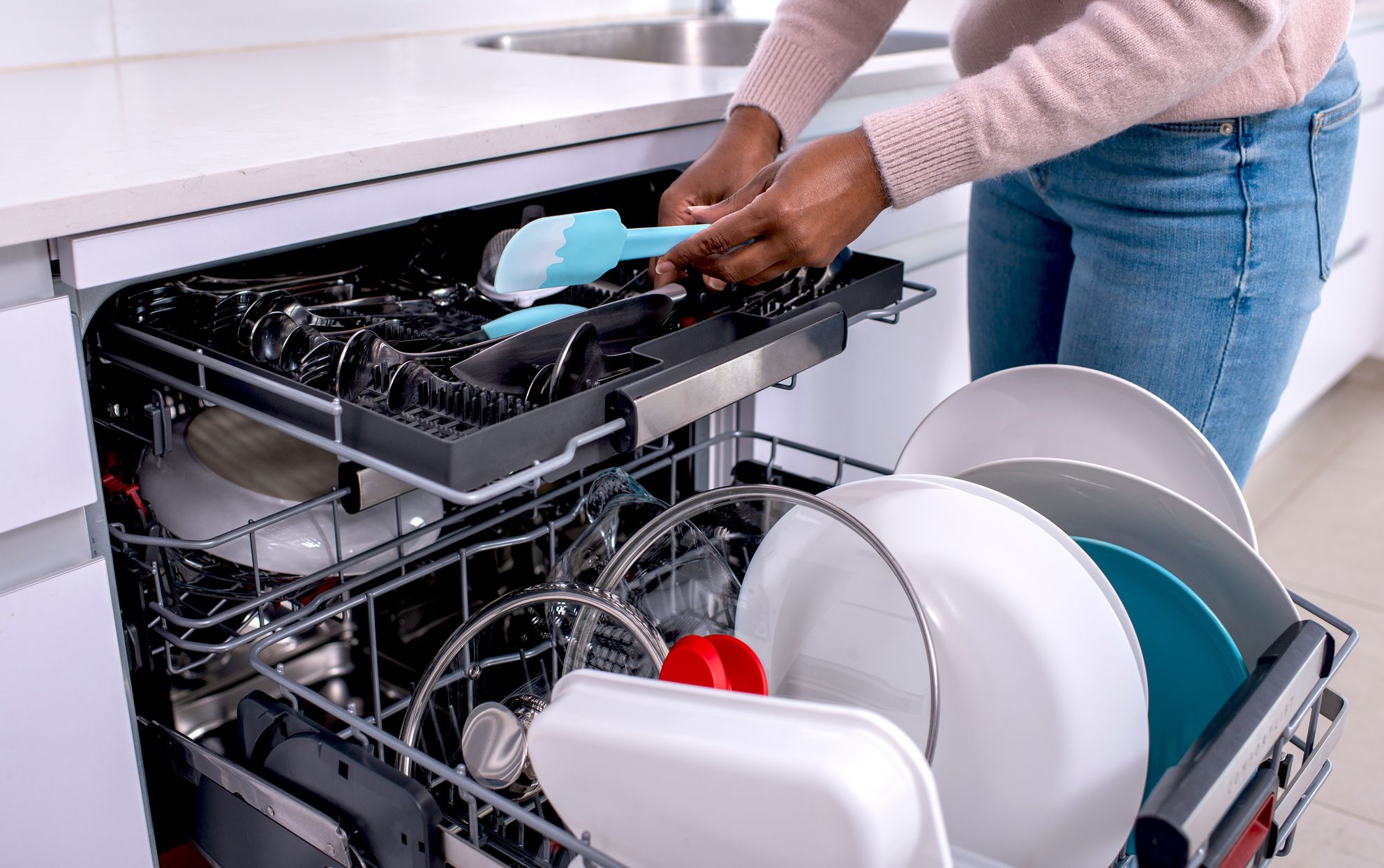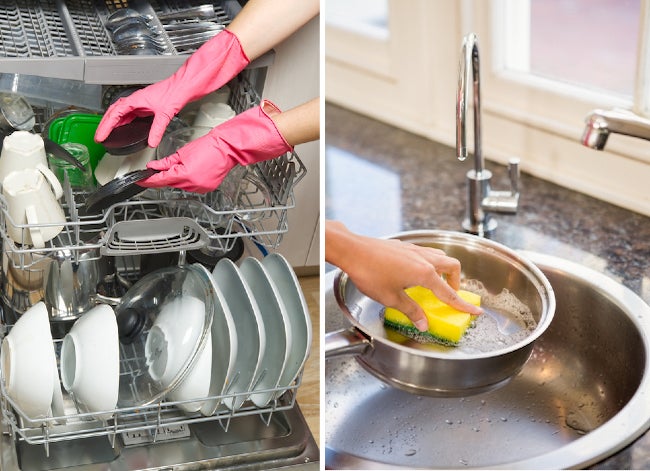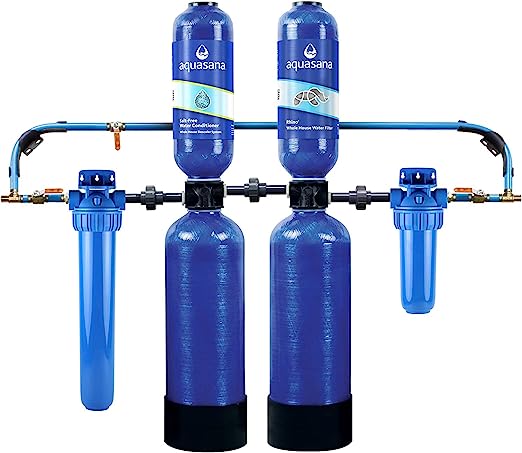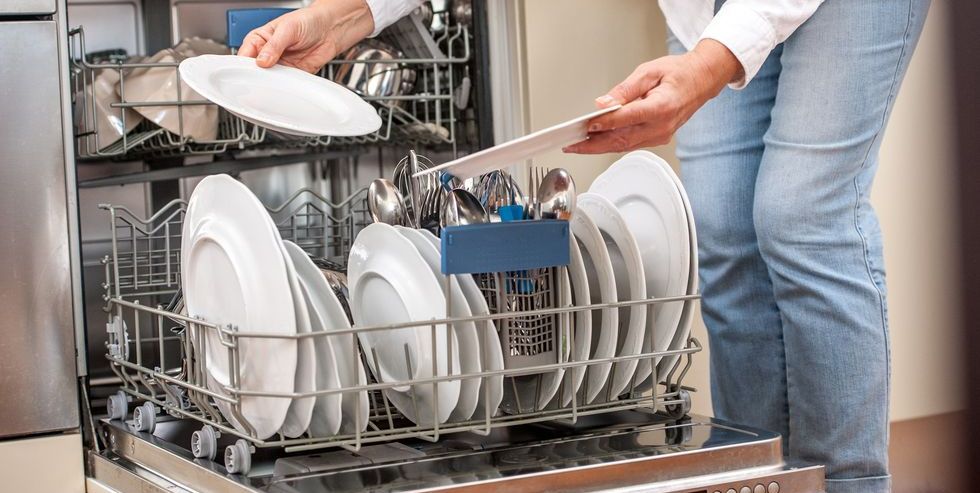When your sole water source originates from a well, a multitude of considerations arises concerning its continuous utilization, the accompanying ramifications of prolonged use, and the exploration of strategies to alleviate the impact of this water source until a lasting solution is achieved.
In this article, we delve into the topic of employing a dishwasher when well water constitutes your exclusive water supply. We also provide guidance on the measures you can adopt to counteract potential repercussions on your dishes and overall health.
Can You Operate a Dishwasher with Well Water?
Utilizing well water in dishwashers is not recommended due to its tendency to introduce fine sand particles that many filters cannot effectively capture. Additionally, well water typically possesses hardness, leading to the deposition of films and stains on your dishes.
- Origins of Well Water: Well water is extracted from subterranean sources, which could include rivers, springs, lakes, and occasionally aquifers (naturally occurring underground reservoirs that accumulate rainwater seepage over time). Given its subterranean origin, the process of pumping this water brings forth numerous minute particles, such as sand, which often evade filtration by conventional means. As a result, it is advisable to conduct regular assessments of your well water quality if you employ it for drinking, culinary purposes, vehicle and lawn maintenance, among other uses. Considering these challenges, it is prudent to opt for dishwasher filters. These devices not only address the issue of filtering out particles from well water but also incorporate inhibitors designed to combat the effects of hard water and the formation of cloudy residue on your dishes.
- Insufficient Heat in Well Water: Another compelling reason why well water may not be the optimal choice for dishwashers lies in its tendency to lack adequate heat. This deficiency in temperature can make it challenging for the detergent to fully dissolve. When detergents are not effectively dissolved in water, they tend to leave behind unsightly residue on your dishes, resulting in a film-like coating.
Effects of Using a Dishwasher with Well Water!
Cloudy Utensils and Dishes Due to Hard Water
Hard water, containing mineral salts such as magnesium and calcium, can manifest as reddish-brown stains on enameled surfaces. Moreover, when well water is rich in minerals like calcium and magnesium, it often leaves behind a chalky residue on household appliances and various surfaces it comes into contact with, resulting in cloudy glassware.
It’s important to note that water hardness stemming from calcium bicarbonate is considered temporary because heating the water can neutralize it, converting bicarbonate into insoluble carbonate. However, any other salt-based hardness is regarded as permanent.
Please bear in mind that both tap water and well water can exhibit hard water properties.
Hard Water Spots, Discoloration, and Rust
Hard water can also lead to discoloration, rust, and stains on your appliances and dishes. Whether using well water or dealing with hard water from other sources, mineral deposits can accumulate on your kitchenware. Over time, these deposits can cause surface oxidation, resulting in rust stains. Glassware, in particular, can become persistently dull and indistinct.
Enhancing Dishwasher Efficiency Against Hard Water Effects
To combat the adverse effects of hard water, it is advisable to use dishwasher detergents specifically formulated for this purpose. These detergents typically contain water softeners designed to break down the hardness of the water. As a result, they effectively remove cloudiness, film, and other manifestations of hard water, ensuring your dishes and utensils come out clean and clear.
The Kind of Water That is Suitable for Dishwasher!
Soft and Warm Water for Optimal Cleaning
Utilizing soft, warm water is crucial to achieving thorough and effective cleaning results when washing dishes. Soft water, in particular, is highly recommended as it helps prevent or resolve the problem of unsightly spots and white limescale deposits that can accumulate on dishes after washing. Combining soft water with the use of lime can be especially effective in combatting these issues, leaving your dishes clean and free from mineral residue.
The Significance of Hot Water for Dishwashing
The use of hot water during the dishwashing process holds great importance, primarily for its ability to eliminate germs and ensure sanitation. This is particularly vital for vulnerable populations such as the elderly and young children, who are more susceptible to the adverse effects of using water contaminated with harmful microorganisms for their daily activities. Hot water serves as a potent disinfectant, helping to safeguard health and hygiene in the home, especially in environments where proper sanitation is paramount.
How Do I Know If I Have Hard Water?
Utilize Water Hardness Test Strips
Checking water hardness is a straightforward task when employing water hardness test strips. To use this method, simply dip the test strip into the water you wish to evaluate. After a brief immersion, shake off any excess water. Wait for approximately 60 seconds, and the test strip will provide a clear indication of whether the water is hard or not.
Spotting Hard Water
Hard water often makes its presence known through the appearance of noticeable water spots on various surfaces throughout your home. You may observe these water spots on items such as dishes, mugs, shower walls, and more.
Rust Stains and White Scale Build-Up
The presence of rust stains on clothing, sinks, toilets, and kitchen appliances can be indicative of the type of water you are dealing with. These rust stains typically result from the elevated mineral content found in hard water. Additionally, hard water tends to cause excessive scale build-up on appliances and pipes, characterized by a whitish scale that is challenging to remove.
Reduced Lathering with Soap and Detergents
When soap and detergents fail to produce a satisfactory lather, it may signal the presence of hard water. In such cases, these substances often cling to surfaces such as shower walls, dishes, clothing, hair, or even skin. To test for this, pour the water to be assessed into a container and add soap or detergent. Seal the container and shake it vigorously. If the water does not produce the expected lather, considering the amount of detergent used, it is likely hard water.
Metallic Odor
Ordinarily, clean plates should not have any discernible odor. However, when dishes are washed with hard water, they can emit an unpleasant metallic smell. This odor can serve as an additional indicator of the presence of hard water in your washing process.
Combating Hardwater
Utilize a Comprehensive Water Filter
To address the adverse effects of hard water on your dishes, consider installing a water filter that comes equipped with scale inhibitors. Look for a filter that offers convenient packaging and includes all the necessary installation components. These filters are designed to effectively combat the impact of hard water, helping to ensure your dishes come out clean and free from mineral deposits.
Choose Phosphate-Free Dishwasher Detergents
Opt for dishwasher detergents like Cascade Platinum, which are phosphate-free and formulated with ample water softeners. These detergents are specifically engineered to tackle and counteract any issues arising from hard water in your washing process. By using such detergents, you can effectively mitigate the effects of hard water and maintain the cleanliness of your dishes.
How Do I Keep My Dishwasher from Getting Hard Water?
If your dishwasher is connected to a hard water supply and you want to prevent the adverse effects of hard water on your machine and dishes, there are several proactive steps you can take:
Try Another Water Source
Consider changing the water source for your dishwasher. Connect it to a different water supply that does not contain hard water. An alternative source could be borehole water that has been treated and softened using a water softener. This way, you can ensure that your dishwasher operates with water that is less prone to causing mineral buildup and spotting on your dishes.
Utilize a Hot Water Supply
Many dishwashers are designed with the capability to heat water before using it for washing. This feature is particularly effective in preventing hard water issues. When the dishwasher heats the water, not only does it help eliminate spots and residues caused by hard water, but it also reduces the concentration of minerals that contribute to water hardness. This ensures that your dishwasher operates more efficiently and produces cleaner results, even with hard water as the source.
Should a Dishwasher Be Connected to a Water Softener?
To achieve optimal results from your dishwasher and ensure the longevity of your appliances, consider connecting it to a water softener. A water softener lives up to its name by effectively softening the water, eliminating the issues associated with hard water, such as residue and chalky deposits.
By integrating a water softener into your water supply system, you not only safeguard your dishwasher but also extend the lifespan of other household appliances, including your washing machine, sprinklers, sinks, fridge, and showers, which can all be adversely affected by hard water.
In conclusion, well water is not the ideal choice for use in a dishwasher, as it tends to leave mineral deposits on both the dishes and the machine itself, potentially reducing their lifespan. For the most efficient use of your dishwasher, consider connecting it to a hot water supply and installing a water softener to achieve the best results. Additionally, always refer to the guidelines outlined in your owner’s manual to ensure the best possible experience with your dishwasher.





